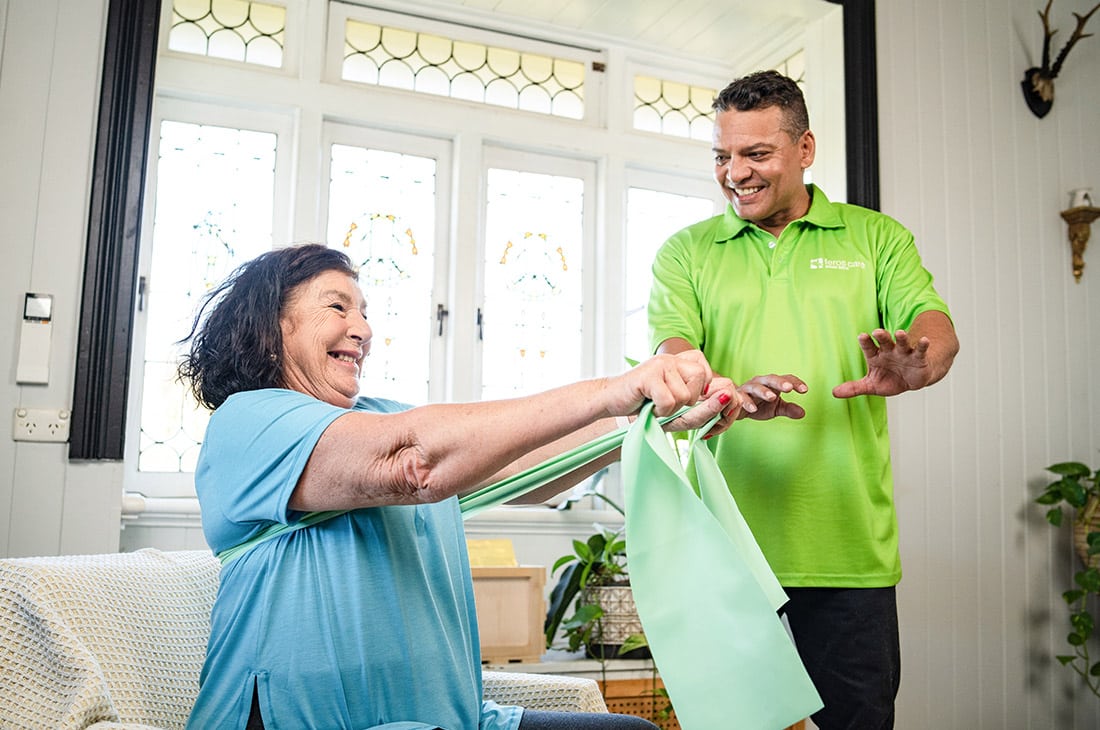How In Home Treatment Givers Address the One-of-a-kind Obstacles and Emotional Requirements of Families Seeking Support for Their Relatives
In-home caretakers play an essential duty in navigating the intricacies dealt with by family members seeking assistance for their liked ones. By recognizing special family members dynamics and providing tailored emotional assistance, these professionals not just address instant care demands however additionally promote an environment of trust fund and open interaction. This strategy is vital in managing the psychological strain typically experienced by households, as it acknowledges their worries and verifies their experiences. The subtleties of this partnership prolong beyond mere caregiving; the ramifications for household health and caregiving effectiveness warrant better expedition.
Comprehending Family Characteristics
Comprehending family characteristics is critical for offering efficient at home care, as each household runs within an unique set of connections and communications. These dynamics incorporate various aspects, including interaction styles, functions, and power frameworks that influence exactly how treatment is delivered and obtained. The caregiver needs to acknowledge these aspects to make certain that treatment plans straighten with the family's values and expectations.
Different families might exhibit unique patterns of communication, such as joint methods or ordered structures. As an example, in some family members, a key decision-maker may hold considerable influence, while in others, decisions might be extra democratic. Understanding these patterns assists caretakers customize their approaches to fit the family's particular requirements.
Furthermore, cultural backgrounds play a crucial function fit family characteristics. Caregivers should be culturally skilled, recognizing and valuing diverse practices and beliefs that may impact care choices.
Eventually, a thorough understanding of household dynamics promotes enhanced interaction, promotes trust fund, and boosts the caretaker's capability to sustain the household successfully. By acknowledging the complex web of duties and partnerships, caretakers can produce an encouraging atmosphere that advertises wellness for both the individual receiving treatment and the household as a whole.
Offering Emotional Support
Offering psychological support is an essential part of in-home care that substantially enhances the health of both the specific obtaining care and their member of the family. In the context of caregiving, emotional support entails active listening, empathy, and recognition of feelings. Caregivers are educated to identify the emotional struggles that households encounter, such as sense of guilt, isolation, and stress and anxiety, and to give a compassionate existence that reduces these burdens.
By cultivating open interaction, caregivers create a safe room for family members to reveal their anxieties and problems. This discussion not just urges psychological launch however likewise enhances depend on between the caregiver and the household. Additionally, caregivers can offer practical strategies to aid family members take care of stress and anxiety and advertise durability.

Ultimately, the psychological assistance supplied by at home caretakers improves the quality of life for both customers and their households, promoting a more thoughtful and understanding caregiving atmosphere. This holistic strategy makes sure that emotional demands are dealt with together with physical health factors to consider.
Taking Care Of Daily Care Tasks
Taking care of daily treatment tasks is an important aspect of at home treatment that guarantees people receive the support they require to maintain their health and wellness and independence. Caregivers play a crucial role in helping with tasks of daily living (ADLs), which consist of showering, dressing, grooming, and dish prep work. By taking on these obligations, caretakers help ease the emotional and physical read review problems that family members may deal with while looking after their enjoyed ones.
Along with individual treatment, caretakers are also tasked with medicine administration, ensuring that clients adhere to recommended does and timetables. This oversight is essential for preserving health and wellness and preventing adverse impacts from missed out on or wrong drugs. Caregivers usually assist with mobility, offering support for clients moving around their homes, thereby reducing the risk of falls and boosting total security.

Promoting Open Communication
Reliable management of day-to-day care jobs commonly rests on the top quality of communication in between caretakers, customers, and their family members. Open up interaction promotes an environment where worries, preferences, and feedback can be openly exchanged, making certain that care is customized to meet private needs. Caretakers should prioritize normal check-ins with both clients and their family members, facilitating conversations that address any type of problems or changes in care needs.
Utilizing various communication techniques-- such as in person meetings, telephone call, and created updates-- can enhance understanding and supply families with comfort. It's crucial for caregivers to actively pay Website attention, showing empathy moved here and respect for the emotional landscape of the family members. Encouraging concerns from relative can additionally help clear up treatment strategies and reinforce the caregiver's commitment to openness.
In addition, maintaining open lines of communication allows caretakers to recognize and respond quickly to any type of changes in a customer's wellness condition or psychological well-being. This aggressive approach not only enhances the caregiver-client dynamic however likewise equips family members to get involved proactively in the treatment procedure. Inevitably, cultivating open interaction is vital for enhancing the quality of in-home care and advertising an encouraging atmosphere for all entailed.
Structure Trust Fund and Relationships
Trust fund is the keystone of effective at home treatment, as it establishes a foundation for meaningful relationships between caretakers, customers, and their family members. Building this trust calls for regular, clear communication and a genuine commitment to the health of those entailed. Caretakers need to show dependability with punctuality, adherence to care plans, and responsiveness to the demands and choices of clients.
To foster trust, caretakers need to participate in energetic listening, making sure that households feel listened to and comprehended. This includes not only resolving instant issues but additionally preparing for future requirements, thereby encouraging family members and improving their sense of control. Creating connection via shared experiences and considerate interactions can even more solidify these connections.
Furthermore, caregivers need to be trained to recognize and address the emotional intricacies dealt with by families. By showing compassion and empathy, they can reduce unpredictabilities and concerns, reinforcing depend on. Normal updates and check-ins with relative can also boost transparency, enabling them to really feel involved and notified concerning their loved one's treatment.
Ultimately, developing trust fund and nurturing relationships in at home treatment is a collaborative procedure that significantly impacts the high quality of treatment offered, promoting an encouraging environment that benefits everybody entailed.
Conclusion
In-home caretakers play an essential function in attending to the unique challenges and emotional requirements of family members. By recognizing family characteristics, giving emotional support, and fostering open communication, caregivers improve the total caregiving experience. Their capacity to manage daily care tasks while building count on and solid connections grows an encouraging setting for customers and their households. Inevitably, the thoughtful involvement of caretakers dramatically adds to boosted health and strength for those browsing the intricacies of caregiving.
Comprehending family dynamics is crucial for offering effective at home treatment, as each family members runs within a distinct set of interactions and connections.Giving psychological support is a necessary component of in-home treatment that significantly enhances the well-being of both the specific obtaining care and their family participants. By taking on these duties, caregivers help relieve the physical and psychological worries that households might encounter while caring for their loved ones.
Reliable administration of everyday treatment jobs often hinges on the top quality of communication in between caretakers, clients, and their households - home care providers.Depend on is the cornerstone of successful in-home care, as it develops a foundation for significant partnerships between caregivers, clients, and their families